Does your day-to-day analysis need you to observe the thermal transitions and behaviors of plastic materials or lead-free solders against heat? Does your lab explore nanomaterials in high-stress environments? Are you measuring melting fraction of milk chocolate or trying to determine the cracking point in caramel as part of quality control?
You may not be doing your best work with the antique differential scanning calorimeter (DSC) or other methods you use right now. There are some easy signs to look for, seven to be exact, to help you decide if your lab needs something new. These seven signs could have a huge impact on the job satisfaction of every colleague in your lab.
You also don’t have to be hands-on with the DSC instrument to get something useful from the tips we’re sharing. They’re meant to help everyone in the lab to contribute to the success of every application a DSC is being used for.
A calorimeter can lose heat signals during operation, resulting in uneven heating within the unit. This signal loss results in inaccurate measurements and likely, an inauthentic final result. If you’re struggling to control or maintain the instrument temperature during operation, this is the first sign that your lab needs a differential scanning calorimetry upgrade.
An excellent DSC can measure different samples with high precision and repeatability. So, choosing the right DSC for your application can take some thought. To get started, you’ll need to know:
If your application needs you to observe samples in real-time, analyze photochemical reactions or take general DSC measurements, a reliable differential scanning calorimeter can support your process from start to finish, from research and development all the way to quality control.
Our NEXTA DSC Series can carry out these measurement processes for polymers, inorganic materials, pharmaceuticals, and food products - among others - and allow you to physically view crystallization and glass transition of samples at low temperatures to -50°C for unique insights into material behavior.
Temperature modulated DSC (TM-DSC) is a technique that control the temperature change is modulated sinusoidally to yield an average rate. This allows to obtain three signals simultaneously. Total heat flow is like the traditional DSC curve you’re used to, while the reversing heat flow and non-reversing heat flow let you see the reversing and kinetic component independently. Whereas the reversing and non-reversing changes overlap in conventional DSC measurements, they can be separated by TM-DSC.
TM-DSC is particularly useful when the glass transition can’t be clearly identified from DSC data due to overlapping non-reversible phenomena. Figure 1 shows how effective TM-DSC is in isolating the glass transition from the standard DSC curve in order to identify it clearly.
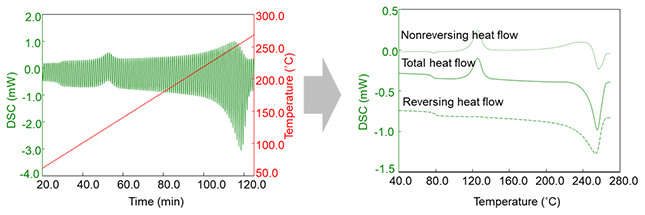
Figure 1: Modulated Temperature DSC example for separation of reversing and non-reversing heat flow
TM-DSC also allows direct measurement of heat capacity. Figure 2 shows an example for heat capacity results of polyurethane using MT-DSC.
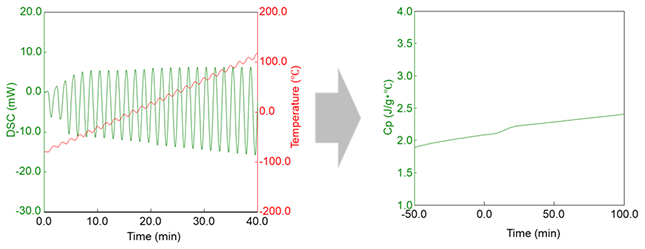
Figure 2: Modulated Temperature DSC example for direct Cp measurement of polyurethane.
Differential scanning calorimetry relies on temperature and calorimetric repeatability. That’s why the days of sticking your sample in an oven with a thermometer had to go.
Regardless of how big or small your sample pool is, your successive calorimetry measurements need consistency to confirm data is reliable. Your testing lab or facility’s reputation, capabilities, and your daily work depend on it.
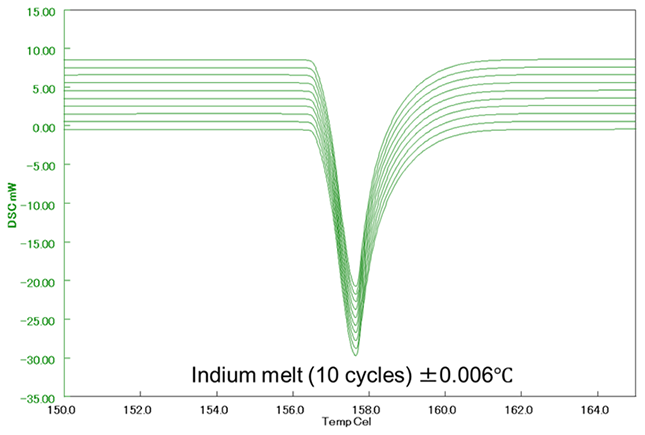
Figure 3: Example of good repeatability
So, if your measurements aren’t consistently repeatable, that’s a big tell your application will benefit from a new DSC. When you choose that new DSC, ask yourself - how tight do my repeat values need to be?
The answer varies from industry to industry, of course. Some labs might be okay with slight variations in temperature. For others, it might compromise their product entirely.
Always err on the side of caution and choose a differential scanning calorimeter that will give you tighter repeat values than you think you need.
The repeatability of your calorimetry relies on accurate and consistent baselines. A consistent baseline will assure you that what you observed is caused by your sample and will allow you to measure even the most minute thermal transition with confidence. If your baselines are off, so is everything else.
If you want stable baseline temperatures, our NEXTA DSC instruments have the most stable baseline temperatures currently available. For DSC equipment operators, it means incorrect measurements caused by heat fluctuations during measurement are eliminated.
Our DSC instruments achieve highly stable baselines of +/-5µW within -150 - 725°C, which are essential for many quality control processes.
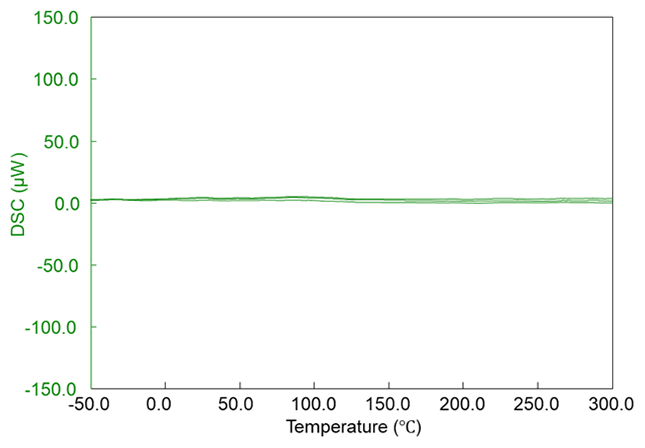
Figure 4: Example on how baseline repeatability should be
Sensitivity is at the core of differential scanning calorimetry. That’s why it’s used by industries with a low tolerance for error or variation.
Pharmaceutical and biochemical testing companies often use DSC equipment to measure:
Working with inadequate sensitivities within your DSC testing can result in inaccurate measurements. They also reduce the types of samples you can accurately measure.
In ultra-sensitive applications, like testing for purity in pharmaceuticals, a missed transition or behavior change due to unreliable baselines could compromise an entire testing cycle, as well as the product being tested.
Our NEXTA DSC Series allows you to detect the smallest of thermal events possible with confidence. A furnace within the detection unit, which is equipped with a single or multiple thermocouples and a three-layered insulation furnace design, makes for better temperature stability following capabilities than most other models on the market, while suppressing the influence of baseline fluctuation. This improves the overall repeatability and sensitivity of the DSC analysis you perform in your lab.
Our NEXTA DSC600 uses a proprietary thermopile-type DSC sensor not commonly used in DSC calorimetry. It allows a high sensitivity of 0.1 µW or lower, making it a universal solution for many labs and allowing users to capture the entire depth of transitions.
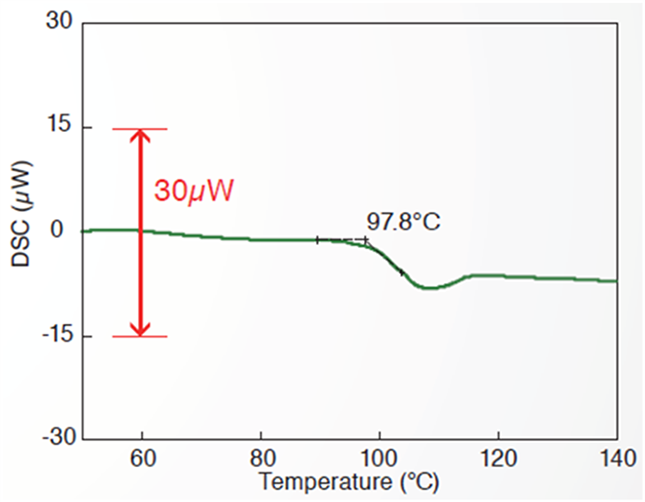
Figure 5: Example of a detection of small thermal transition obtained with our NEXTA DSC600
Cooling units can help to reduce or completely eliminate troublesome exchanges during DSC testing. They also expand the types of testing your calorimeter can perform.
The way a material cools after heat is applied gives operators a lot of insight into the sample’s behavior.
That’s why it’s ideal for most operators to work with DSC testing equipment that can integrate with cooling equipment. If your calorimeter can’t integrate with a cooling unit, you’re limited in the sample types and phases you can measure.
There are three types of cooling options available: air cooling, electrical cooling systems and LN2 cooling systems.
Electrical cooling is ideal for any industry looking for precise control over its cooling temperatures. In this method, cooling rate can be accurately controlled and you just need electricity to make it work. The controlled cooling rate and lowest temperature will be limited to the type of electrical cooling you are working with. For DSC operators looking to measure crystallization or recrystallization, electrical cooling is the best option to effectively analyze material behavior.
LN2 Cooling is exactly what it sounds like. Where electrical cooling is limited in controlled cooling rate and to its lowest temperature, LN2 cooling allows better cooling rate control and gives the option to go lower in temperature. The only drawback is that you will need to refill your Dewar regularly.
If you don’t know which one to choose, or you think you will only sporadically require liquid Nitrogen cooling, the NEXTA DSC series allows dual cooling on one system to give you the flexibility you need. Have a look at our webinar on how to simplify your DSC analysis with a dual cooling system if you would like to know more about this subject.
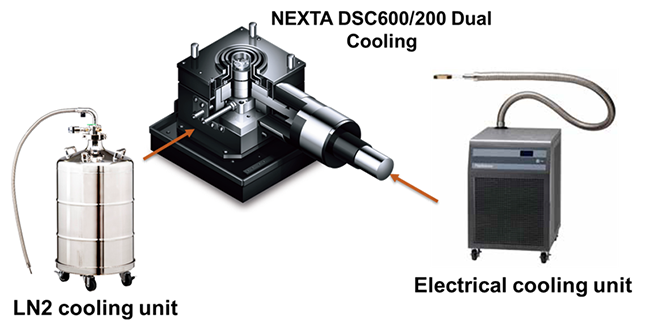
Figure 6: Dual cooling with NEXTA DSC600/200
A good calorimeter takes accurate and repeatable measurements, getting the job done. But an excellent DSC calorimeter makes your job easier and allows you to expand your testing possibilities by hosting expansions that enhance your testing processes. When you work with a calorimeter that can pair with additional measuring accessories, you can:
Ready to discover more about the NEXTA DSC600 and NEXTA DSC200? Contact our experts to book your demo.
Book your demoYou might also be interested in: